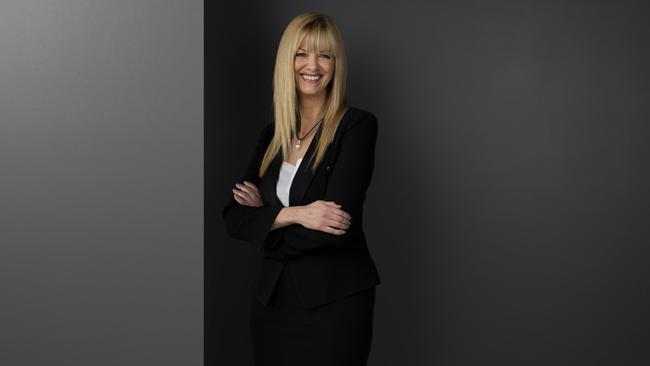Start-up lay-offs ‘just the beginning’ for tech sector
Australia’s technology start-ups are bracing for a period of prolonged pain and many will not survive the carnage, one of Australia’s leading venture capitalists said.

Australia’s technology start-ups are bracing for a period of prolonged pain and many will not survive the carnage, one of Australia’s leading venture capitalists said, pointing out that the recent wave of lay-offs were just the beginning for what was the nation’s fastest-growing sector.
Michelle Deaker is the founding partner and managing director at OneVentures, one of the nation’s largest venture capital firms, which has about $550m in funds under management and a list of portfolio companies including Zoomo, Eucalyptus, EatClub and Employment Hero.
Local tech start-ups Voly, Brighte, 5B Solar and Envato have collectively laid off hundreds of staff in recent months and Dr Deaker said that venture capital firms, including her own, are now adjusting their investment strategies to be more selective about the start-ups they invest in.
She said the writing has been on the wall for some time, in terms of warning signs for high-growth, cash-burning companies.
“In Australia, what’s happened is VCs (venture capital firms) are now looking about two years out and saying ‘we think it’s going to be a lot more difficult to raise capital over the next couple of years’, and they also know that their portfolio companies are going to depend on them a lot more to survive,” Dr Deaker said.
“That’s leading to a rethink, and VCs are pulling some of their capital out of the market. And for the start-up economy, that means that if you’re not already venture-backed, it’s going be a lot harder for you to raise capital, and the venture capital companies are going to have a lot more power over the price and terms that they ask for than they did 12 months ago, when there was a huge amount of capital in the market.”
Australia’s fintech companies – and buy now, pay later providers more specifically – were particularly overvalued last year, she said.
Zip in early 2021 was worth more than the likes of JB Hi-Fi, AGL Energy and Nine Entertainment, before tumbling in valuation by 94 per cent over the past 12 months. Other challengers including Sezzle, Splitit and Humm have also similarly seen their share prices fall.
“On a fundamental basis it was hard to see how that value made sense,” Dr Deaker said of BNPL stocks. “Cryptos have begun to unwind as well and I think there’s still more to happen there.”
The executive said the combination of aggressive government stimulus during the Covid-19 pandemic, supply chain issues and the war in Ukraine had created a perfect storm that was inevitably going to lead to widespread lay-offs for Australia’s technology start-ups.
She added, however, that she still believed in her long term thesis that technology would continue to grow and drive productivity benefits for the economy. “With the amount of stimulus that came in, that eventually had to unwind, and the only way that governments know how to unwind that is by putting up interest rates and basically using inflation to take the money out of the economy,” she said.
“Probably what we didn’t factor in was the war on Ukraine and the energy crisis as well. I’ve been through, you know, the first dotcom bust, I’ve been through the global financial crisis, and this is similar. We knew it had to unwind at a certain point, and that at some stage people were always going to reprice risk.
“Obviously there was just no yield to be had anywhere else so our industry moved into slightly riskier asset classes. With all that money flowing in, people were forgetting to price risk, and that‘s obviously changed and unwound now pretty dramatically.”
Most at risk are companies that are still burning cash and not yet profitable, Dr Deaker said, given those companies will be forced to try and raise capital again, but likely at a lower valuation.
“This time the risk will be priced in, and the company will be wanting to avoid a down round, so they’ll look for other ways to extend their cash runway,” she said. “Companies are coming to us looking to extend their runway to a point they could become profitable or achieve their next milestone.
“I also think that with a cost of energy increasing dramatically, that’ll certainly impact profits and margins in any businesses that are high energy users.”
OneVentures is setting aside more capital per company, and is being more selective about the types of companies it’s investing in, specifically looking for cashflow-positive start-ups, and companies led by experienced management teams, who might therefore be more capital efficient.
“Companies that make it through this stage, can and will become the next great companies,” she said. “We’ve seen it happen in multiple crises, whether it was global financial crisis or others, there will always be emerging companies that really came through strongly.
“When capital is constrained, only the best-performing companies really come through strongly. So this is where there’s a really big opportunity right now in some senses. There’s going to be good opportunity for investors to invest in the sector and back some really true long term companies that will come through here and do really well in the long run.”


To join the conversation, please log in. Don't have an account? Register
Join the conversation, you are commenting as Logout